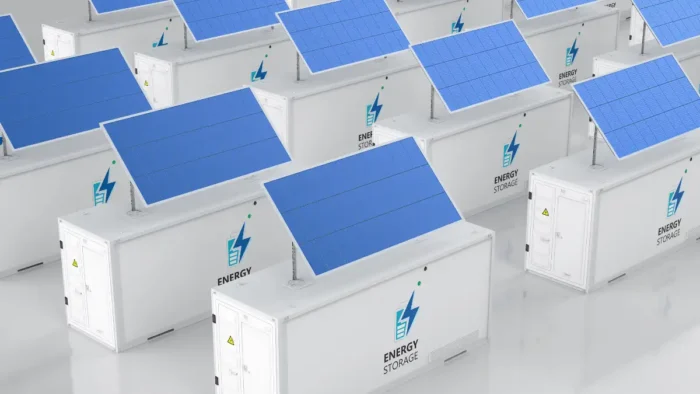Are you looking for ways to make your business more efficient and cost-effective in 2023? If so, workflow automation can be the perfect solution.
Workflow automation is an emerging technology that automates the flow of tasks within a business. It can be used for many purposes, from managing customer service requests to automating financial processes. With workflow automation, companies can reduce costs by eliminating manual labor, streamlining operations, and increasing efficiency.
In 2023, workflow automation will be an invaluable tool for businesses of all sizes. Companies can save time, money, and resources by automating mundane tasks and streamlining processes. This source at FlowWright provides information on workflow automation that can help your business achieve higher productivity and cost savings. There are many features to learn about, such as automated task scheduling, data integration, document management, and more. With workflow automation solutions, companies can automate their workflows easily and efficiently. Keep reading to explore how workflow automation can help your business become more successful.
1. Enhanced Collaboration And Communication
Workflow automation can improve collaboration and communication within a business. Teams stay on the same page and stay informed about the status of projects by providing real-time updates, notifications, and alerts. As such, teams work together more effectively and reduce the need for manual coordination.
Automation can also help distribute tasks among team members and ensure everyone is aware of their responsibilities. For this reason, everything is clear and timely.
Automation can help centralize data. It makes it easier for teams to access and share information and improves overall collaboration and communication. This can result in better decision-making, faster problem-solving, and improved team performance.
2. Enhanced Productivity
Smart technology isn’t the future anymore; it’s here. With workflow automation, businesses in 2023 can reap a wealth of benefits. Automation helps streamline and automate tasks. This way, more time can be spent on higher-value activities that bring more investment returns.
Workflow automation increases productivity by eliminating time-consuming tasks and freeing up valuable resources. By replacing manual processes with automated ones, you can reduce the time spent on monotonous tasks and focus on more important goals instead. Implementing workflow automation keeps all your business processes running at maximum efficiency, which every organization can benefit from.
3. Better Customer Service And Engagement
Workflow automation can significantly benefit your business by allowing you to deliver higher-quality customer service. Automated processes can guarantee that customer issues are directed and handled on time while automatically alerting the right staff whenever a problem needs attention. This will help to ensure customer satisfaction and build a loyal customer base.
Furthermore, automated workflow processes can help reach out to customers through promotional campaigns and other engagement initiatives. This way, customers are kept in the know regarding product developments, discounts, or special offers. Automating these types of interactions streamlines contact efforts and helps build strong relationships with customers within your target market.

4. Reduced Human Error And Improved Accuracy
Workflow automation can reduce errors and improve accuracy. Automation processes are less prone to errors than manual ones. They eliminate the possibility of human error.
Automation technologies are powerful when dealing with complex information systems and functions by providing accurate results and focused improvement of your team’s efforts. This is because processes that might have taken multiple steps and produced mistakes are streamlined and simplified.
Automation can also ensure that tasks are completed in the correct order and that all necessary steps are followed. As a result, the accuracy and quality of the work produced will improve.
Furthermore, automation can help businesses to standardize their processes, making it easier to ensure that all tasks are completed consistently and correctly. It also helps reduce errors and improve data entry and record-keeping accuracy.
5. Cost Saving
Workflow automation can help businesses save costs. It can reduce labor costs by eliminating the need for employees to perform repetitive and time-consuming tasks. This way, companies can allocate their resources more effectively and operate more efficiently.
When businesses automate their workflow, they reduce costs associated with errors and mistakes, as automated processes are less prone to errors than manual ones. Automation can also help businesses save on operational costs by streamlining processes and reducing the need for manual intervention.
Additionally, automation can lessen costs associated with maintaining and updating software and systems, as many automation tools are cloud-based and require less maintenance and updating than traditional software.
6. Greater Scalability
When it comes to workflow automation, one of its advantages is that it can help businesses scale their operations more efficiently. It can help companies to handle increased workloads and more tasks without adding staff. As such, businesses can grow and expand without incurring additional costs associated with hiring more employees.
Further, automation can also help businesses better manage resources. This can help them adapt to changing market conditions and easily take on new projects. Companies can focus on more critical and strategic initiatives that drive growth and success by automating repetitive and time-consuming tasks.
7. Faster Task Management And Completion
Workflow automation offers an excellent opportunity to streamline processes and increase efficiency as businesses strive to meet customer demands. As a result, workflow automation can help with faster task management and completion by simplifying processes and eliminating bottlenecks.
With automated workflows, companies also gain more control over their projects. Automation ensures that tasks are completed according to pre-established standards and timelines without compromising quality. This helps avoid costly delays and errors as when employees execute tasks manually. Automation can also help businesses prioritize and manage jobs more effectively, which can help them get more done in less time.
Conclusion
Workflow automation can benefit businesses in many ways. Some key benefits include increased efficiency and productivity, reduced errors and improved accuracy, improved customer service, enhanced collaboration and communication, greater scalability, and cost savings.
Automation can help businesses handle increased workloads, manage resources more effectively, adapt to changing market conditions, and take on new projects. Moreover, it can help companies to save on labor and operational costs and reduce costs associated with errors and mistakes. Overall, automation can help businesses operate more efficiently and effectively, leading to improved performance and greater success in the future.





